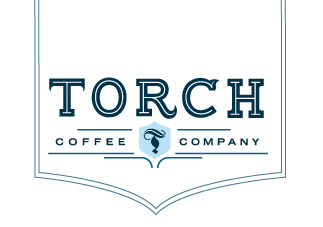SCAA Coffee Tasters Level 2 Class Descriptions
CP302 Espresso Exploration
This taste testing and experimentation class provides students with an opportunity to explore espresso preparation techniques and their effects on the sensory aspects of the beverage. Students will appraise and compare various espresso recipes, relating the effects of recipe changes, and develop a method creating a “best practice extraction recipe”. Specific objectives of this class include:
- Appraising and recording sensory qualities of given espresso recipes using WBC sensory evaluation form
- Comparing sensory attributes of espresso prepared with different recipes
- Relating how changes in recipe affected final sensory experience
- Creating and/or revising recipes to achieve “best” espresso extraction recipe.
GE206 Grinding & Grind Analysis
This class will enable students to discuss the business case and essential elements of grinding, and taste coffee brewed to highlight the importance of proper grinding. Students will use processes and procedures to measure coffee grinds or particle sizes and watch a demonstration of grinding analysis equipment.
GE217 Coffee Lab Equipment
This class is designed to introduce experienced coffee professionals to commonly used lab equipment and quality control procedures in a fully functional coffee testing laboratory. Quality control begins with cupping, but other aspects such as objective physical measurements assist cuppers in determining why a coffee tastes as it does, whereas testing and record keeping enables cuppers to improve and can be a helpful communication tool to customers. Students will learn various quality control methods, interpretation of test results, and action steps based on specific test results. The class also provides hands-on demonstrations including use of equipment, evaluation of samples, calibration, and maintenance.
GE304 Taste Testing for Production
This class helps those who work in quality control identify errors in production facilities, and reviews some of the most prevalent inconsistencies in coffee processing and production, as well as the options for use of inconsistent product for sale. Focusing on sensory analysis difference tasting, this is a fast-paced tasting class catered to coffee processors, producers, roasters, and baristas. It assists them in evaluating the consistency of their finished product using the SCAA standard protocol, in order to determine impact on customer loyalty. In this class, students analyze the sensory impact of three important production issues and decision-making when these occur: incorrect coffee or blend, incorrect grind, and incorrect roast level.
GE308 Consumer Product Taste Testing: Coffee
Coffee professionals of different disciplines need to have objective skills in sensory testing: designing and conducting tests, recording results, generating data and analyzing statistics to make profitable choices for their companies. Beverage recipes and coffee choices that include consumer input can lead to a better knowledge of consumers, awareness of customer base, and improved sales. This class will explore the use of sensory testing techniques to create a program that addresses product development. It will provide students with tools for weighing consumer preferences and customer inclinations, including paired preference, ranking preference, and the hedonic scale, which will be performed and discussed in class.
GE353 Coffee Tasters Flavor Wheel
This class illuminates the development and theory behind the SCAA Coffee Tasters Flavor Wheel, which is a tool designed for professional coffee cuppers that defines common industry terminology used in the sensory evaluation of coffee. The wheel also offers insight into how those characteristics develop, and gives specialty coffee professionals the tools to articulate sensory experiences. This class focuses on the right half of the right wheel; it begins with distinguishing the aroma categories, then culminates with an activity involving nine representative coffee samples that demonstrate tastes on the Flavor Wheel.
RP104 Decaffeination
This class is designed to provide a knowledge base of the decaffeination of green coffee. Students will be introduced to the chemical composition of coffee in relation to caffeine, and a brief history of decaffeination, followed by an in-depth discussion of the various processing methods, and an opportunity to taste coffee from three or more decaffeination methods. The class also covers quality issues surrounding decaf coffee, market share, market opportunities, and pertinent terminology.
RP112 Introduction to Roasting Concepts
This class lays the foundation for successful small batch roasting by introducing critical terms and concepts that are the underpinning of the roasting process. Students are guided through initial roast development (everything before first and second crack) and taught to observe how decisions and actions can affect the final product (both positively and negatively). Through hands-on practices in class, students will learn to manipulate and adjust a small batch drum roaster to meet their desired craft roasting goals.
RP216 Identifying Defects in Roasting
This class presents the fundamentals of roasting to students by providing them with a general understanding of the types of heat and how they apply to green beans to produce quality roasted coffee. It includes the relationship of energy conversion between heat and mechanical systems, which is extremely relevant for operators of roasting equipment for purposes of safety, as well as for managing variables to produce predictable results. Students are encouraged to apply concepts to their own roasting operations, as they participate in heat transfer demonstrations and taste the same coffee roasted to the same profile from three roasters of different materials and drum thicknesses.
RP223 Sample Roasting
This class prepares students to be able to evaluate green coffee for buying decisions, by training them to consistently roast samples using typical sample roasting equipment and cupping with the SCAA protocol as the recommended guide. It helps students begin the process of creating a consistent sample roasting program, including checking green grade, recording information, storing samples, making conscious buying decisions, having a roasting log, and maintaining equipment.
